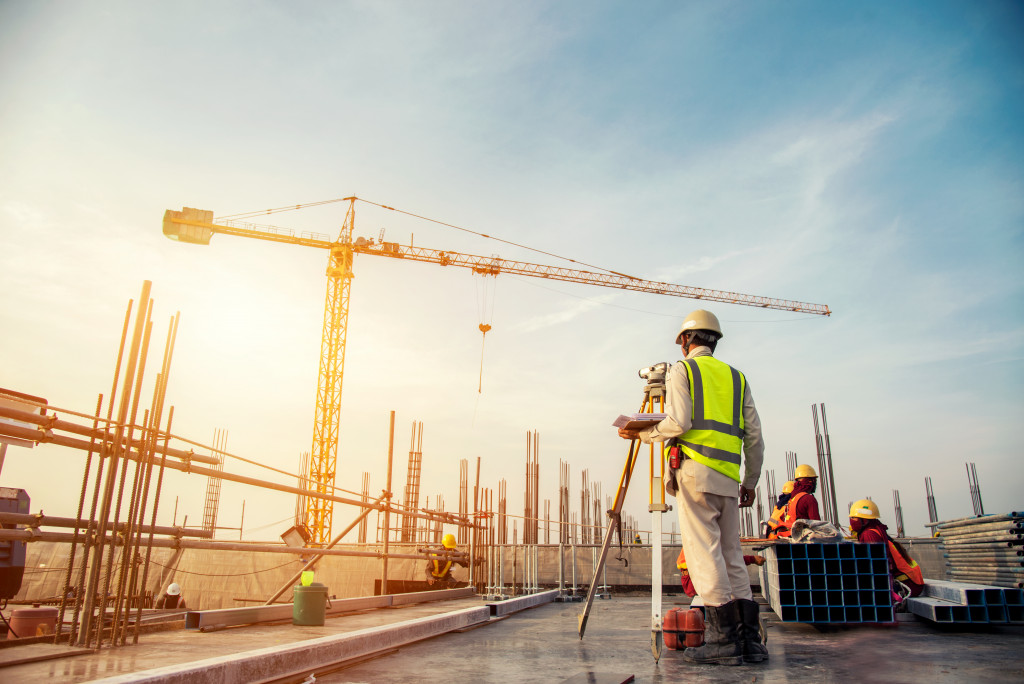If you are just starting your own construction business, you most likely have asked the question about specializing in residential or commercial projects. After all, in an industry with many players, the expertise sets you apart from the rest. Residential and commercial are two major construction categories. The distinction between these two types lies in the type of structures based on utilization. Residential construction projects involve housing structures such as single-detached apartments, duplexes, multi-family housing, etc. Commercial construction deals with office buildings, warehouses, and other industrial facilities.
Other key differences between residential and commercial construction projects have to do with variances in building materials, design, permits and codes, cost, equipment, and timelines. Read more before you decide which of the 2 arterial construction markets is more suitable for your company.
Residential vs. Commercial: Construction Project Types
Residential structures are those that are designed primarily for living. There are various forms of residential facilities:
- Single-detached — for single families or consumer units
- Apartments — duplex, triplex, or fourplex
- Townhouses
- Multi-family housing or cooperatives
- Condominiums
However, residential apartment buildings, especially large-scale complexes, may also be considered commercial properties because spaces are leased or rented out to tenants.
On the other hand, commercial structures are much more mixed-use than residential properties. Commercial structures are primarily designed for business use such as offices, factories, hospitals, warehouses, shopping malls, schools, etc. Other structures considered to be commercial are:
- Land developments
- Industrial buildings
- Storage facilities
- Multi-level parking complexes
Building Materials
Every construction project will require particular building materials as required by the design of the structure.
Broadly, the materials needed to complete a residential construction project would differ from those required by a commercial project. The typical home utilizes timber frames that are cost-effective and suitable for small-sized structures. Steel frames are not as widely used for small structures such as homes because of their higher price points.
On the other hand, larger commercial structures typically require steel frames that are more resilient and durable enough to hold tall and/or large structures.

Design
Most commercial properties are built following a certain “template” or tested model found in many other commercial buildings. With residential properties, on the other hand, homeowners are more in control of the outcome, with more freedom to customize the structure. For skyscrapers, there is less room for personal customization because of more stability considerations.
Codes snd Permits
While both residential and commercial building projects need to comply with codes and secure permits, commercial structure construction projects follow stricter regulations than those imposed for residential projects. Specifically, commercial properties have unique regulations for:
- Size
- Materials
- Design
- Construction techniques
- Electrical components and systems
- Plumbing
- Elevators
- Parking
- Handicap accessibility
Project Costs
Even for structures that are comparable in size, the costs for commercial and residential projects remain significantly different. Mainly because of the different materials, labor, equipment, and compliance standards, commercial construction projects tend to be more costly than residential.
Residential construction projects, of course, would similarly have materials, labor, equipment, and compliance standards — but because residential projects are typically much smaller scale, these structures won’t cost as much to build.
Additionally, the source of funding for these projects would be distinct. Banks, governments, or corporate investors usually fund commercial construction developments. Residential buildings are often funded by private homeowners such as families or real estate investors who build apartments for their source of income.
Construction Equipment
By nature, commercial buildings are relatively larger and more complex, thus usually require special equipment such as cranes, excavators, and other heavy machinery not necessarily used in residential projects. Your trusted construction equipment supplier could make good recommendations about which types of equipment you should invest more in, depending on your construction specialization.
Heavy equipment required in commercial developments often requires experienced operators. Residential developments frequently use independent skilled contractors with no such license to operate heavy machinery.
Timelines
Commercial construction projects typically follow more stringent deadlines than residential projects because the former are usually sold or contracted to other parties. Because of this, commercial properties typically require significantly more labor headcount to meet the project timelines.
Commercial and residential construction projects are two very distinct construction markets. Each type of building will be unique in the materials, design, compliance standards, costs, equipment, and timelines, from planning to execution to project turnover. Finer details such as a source of funding and the number of construction laborers required will also be different between the two major market types. With these distinctions in mind, consider which construction market is more suitable for your company to specialize in, depending on your manpower, funding, expertise, and capital assets.

